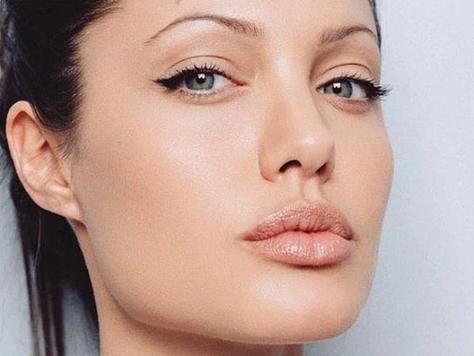一双美丽的大眼睛通常都被视为相貌上的优势,可英国眼科专家却表示,大眼睛的人更容易得近视眼。所以从这个角度来说,大眼睛反而成了一个弱点。专家指出,近视眼是由于外界光线焦点没有正确落在视网膜上而造成的,大眼睛的人因为眼球太大而导致外界光线焦点没有落在视网膜上,而是落在视网膜前方,因而无法在视网膜上形成清晰的图像。与此相反,眼睛小的人更容易得远视眼,也就是外界光线焦点落在视网膜后方。
英国患近视眼的人在不断增加,目前全国约有一半人是近视眼。专家表示,眼睛前后直径平均值为24毫米,比这个数值高出1毫米,眼睛就会明显近视;而高出2到5毫米则是高度近视。专家解释称,现在近视的人越来越多可能是因为大家待在室内的时间过多,外界自然光线会让眼球自动调节生长状态,避免眼球过大,而室内的人造光线则没有这个功效。

 |
|
Yet eye experts have realised that far from being an asset, large eyes can actually be a weakness, and make someone more prone to being short-sighted. |
Rebecca Large has always been told her big brown eyes are her best feature. Like those of Hollywood stars Angelina Jolie and Audrey Hepburn, Rebecca's eyes are regarded by most as a sign of beauty.
Yet eye experts have realised that far from being an asset, large eyes can actually be a weakness, and make someone more prone to being short-sighted.
This condition, also known as myopia, causes distant objects to appear blurred, while close ones can be seen clearly. It is caused by light not properly reaching the retina, the light- sensitive area at the back of the eye.
Experts believe this might be because the eyeball grows too large, which causes the light to focus in front of the retina, rather than on it.
Short-sightedness is on the rise in Britain, with up to 50 per cent of people now estimated to have it.
One possible explanation for this is that our eyeballs are getting larger because we are spending more time indoors. A lack of outdoor light in our early years causes the size of the eyeball to increase. But the larger the eyeball, the more likely a person is to be short-sighted, explains Andy Luff, a consultant ophthalmic surgeon at Optegra, a chain of private eye hospitals.
'While big eyes can certainly look beautiful, the fact is that if your eyes are slightly too big, this will cause you to suffer short sight. If the eyeball is too big, the light focused by the lens of the eye does not reach the back the retina, where images are processed.
'If the eye is only 1 mm longer than 24 mm (the average size from front to back) a person will be significantly short-sighted. Longer than the average by 2 to 5mm will make you highly short-sighted.'
Dr Luff explains that in the past we thought the eye grew too large and became short-sighted due to genetic factors.
'Although genetics is still the most important reason behind short-sightedness, lack of exposure to outdoor light is another possible cause. And it's the one preventable cause which can be addressed in childhood.'
Our eyes usually reach their full size by our 20s. The ideal is that they stop growing at the right size and will have perfect vision, but if they grow too big they'll be short-sighted and if they don't grow enough they're long-sighted, and won't be able to see things close up. Some children can have eyes that are too large by the age of five, says Dr Luff.
A review published by the University of Cambridge in 2011 found that for each additional hour spent outside each week, the risk of short-sightedness was reduced by 2 per cent. The review of studies involving 10,000 children and adolescents found that short-sighted children spent on average 3.7 fewer hours per week outdoors than those with normal vision or long-sightedness.
But how could exposure to light change the shape of the eyeball? Dr Saunders suggests that natural light in the eyeball flicks a type of biological switch that prevents it from growing too large. However, artificial light is not strong enough to flick this switch.
People with small eyes tend to be long-sighted and will have difficulty seeing close objects clearly because light rays are focused behind the retina.
But this tends to be largely genetic. 'Too much outdoor light will not make your eye long-sighted,' says Mr Luff. He adds that short-sighted people seem to suffer more complications than those who are long-sighted.
'We see far more associated eye health problems in the short-sighted than the long-sighted, so it's worth doing everything you can to try and prevent it,' he explains.
However, Dr Susan Blakeney, clinical adviser to the College of Optometrists, says there could be other factors contributing to why our increasingly indoor lifestyles may be causing bad eyesight.
'We still don't know what it is about time spent outside that has a protective effect against short-sightedness - it could be the sunshine, the brightness of the light or the fact that objects you focus on tend to be farther away outdoors.'
In rare cases short-sightedness can also be caused by the curve of the cornea (the transparent part of the front of the eyeball) being too steep.
(Source: Mail Online)
相关阅读

(中国日报网英语点津 Helen 编辑)